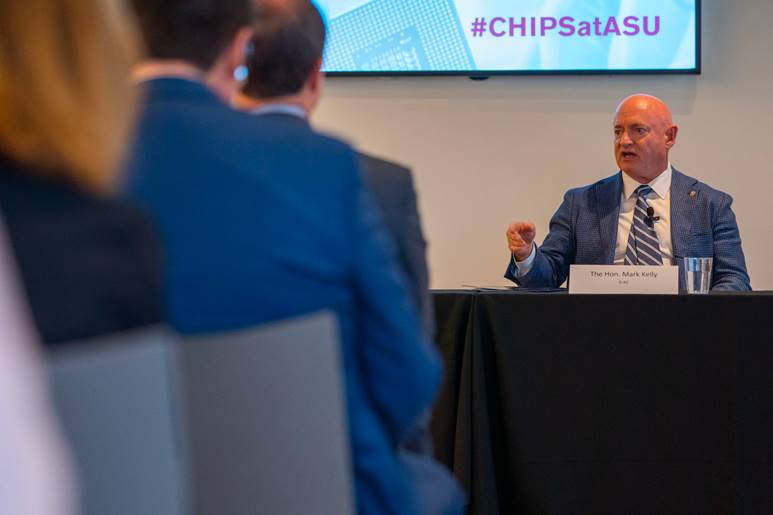PHOTOS: Sen. Kelly Discusses How His CHIPS Law Will Strengthen National Security, Boost America’s Competitiveness
Kelly also highlighted how private and public sectors can work together to build a robust talent pipeline
Yesterday, Arizona Senator Mark Kelly spoke about the historic passage of his bipartisan CHIPS Act, now law, during a panel conversation hosted by Arizona State University. Kelly was a chief negotiator of the CHIPS Act which will make once-in-a-generation investments that will build and expand advanced microchip manufacturing in the United States, strengthen our national defense, lower costs, and boost our country’s competitiveness.

During the panel, Kelly, a Navy combat veteran who serves on the Senate Armed Services Committee, emphasized how his CHIPS law will help the U.S. reduce its reliance on foreign countries for this critical microchip technology used in the most advanced weapons systems as well as everyday products. Kelly, the Chairman of the Emerging Threats and Capabilities Subcommittee, has worked to address the national security threat posed by the current microchip supply chain.

On the panel, Kelly was also joined by Bruce Andrews, Corporate Vice President and Chief Government Affairs Officer for Intel, and discussed the importance of the private and public sectors working together to not only address the global microchip shortage but to build the pipeline of Arizona talent needed to fill these high-paying jobs, which often do not require a four-year degree.
Kelly also highlighted his recent visit to Phoenix where he welcomed Commerce Secretary Gina Raimondo to ASU and highlighted how investments from his CHIPS Act will strengthen existing public-private partnerships between universities like ASU and semiconductor companies in Arizona, creating more economic opportunities for Arizonans.
